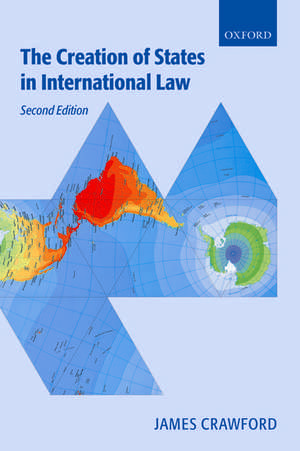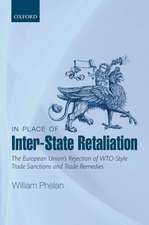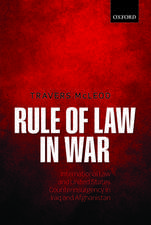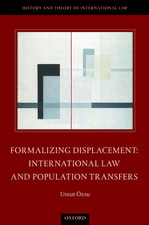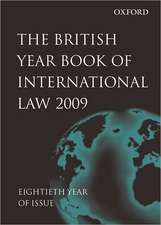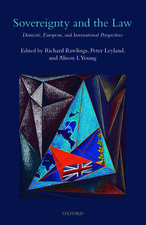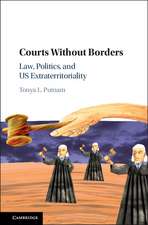The Creation of States in International Law
Autor James R. Crawforden Limba Engleză Paperback – 15 mar 2007
| Toate formatele și edițiile | Preț | Express |
|---|---|---|
| Paperback (1) | 587.70 lei 31-37 zile | |
| Oxford University Press – 15 mar 2007 | 587.70 lei 31-37 zile | |
| Hardback (1) | 1331.79 lei 31-37 zile | |
| Oxford University Press – 22 feb 2006 | 1331.79 lei 31-37 zile |
Preț: 587.70 lei
Preț vechi: 703.95 lei
-17% Nou
Puncte Express: 882
Preț estimativ în valută:
112.46€ • 116.20$ • 93.55£
112.46€ • 116.20$ • 93.55£
Carte tipărită la comandă
Livrare economică 08-14 martie
Preluare comenzi: 021 569.72.76
Specificații
ISBN-13: 9780199228423
ISBN-10: 0199228426
Pagini: 944
Dimensiuni: 156 x 234 x 41 mm
Greutate: 1.23 kg
Ediția:2nd ed.
Editura: Oxford University Press
Colecția OUP Oxford
Locul publicării:Oxford, United Kingdom
ISBN-10: 0199228426
Pagini: 944
Dimensiuni: 156 x 234 x 41 mm
Greutate: 1.23 kg
Ediția:2nd ed.
Editura: Oxford University Press
Colecția OUP Oxford
Locul publicării:Oxford, United Kingdom
Recenzii
..[the] meticulous and detailed use of a vast array of situations is a significant strength of the book and will make it the first reference point for anyone practising or researching in this and related areas. The depth of understanding of each situation, the ability to see the various aspects of each situation and to apply them to various legal arguments is impressive.
..a work of high-quality scholarship..detailed, closely argued..shows an author in commansof his field. It is highly recommended for all international lawyers, international relations experts and others who have to deal with these situations.
..a work of high-quality scholarship..detailed, closely argued..shows an author in commansof his field. It is highly recommended for all international lawyers, international relations experts and others who have to deal with these situations.
Notă biografică
James Crawford is the Whewell Professor of International Law at the University of Cambridge, where he is Chair of the Faculty of Law, 2003-06. He was formerly Director of the Lauterpacht Research Centre for International Law, 1995-2003. Before moving to Cambridge in 1992 he was a Member of the Australian Law Reform Commission; from 1992 he was a member of the International Law Commission, and was responsible in that capacity for the ILC's Draft Statute for an International Criminal Court (1994) and the ILC's Articles on State Responsibility (2001).
